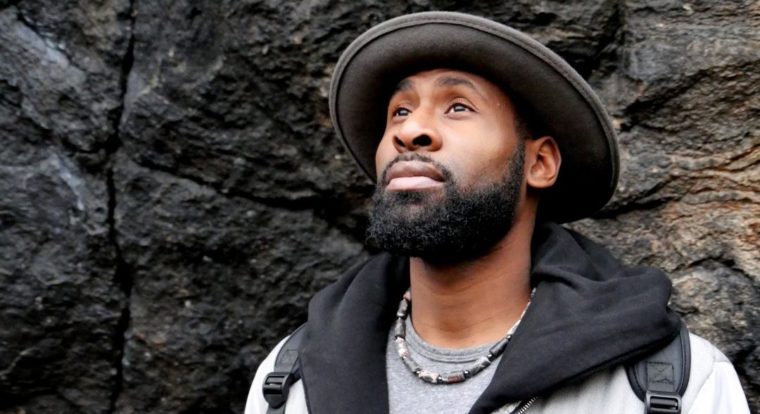Our culture is overly impressed with the externals. You must look good on TV to win the political race. It’s the image you need to polish. Spin it just right. But we all know—and all have seen—that a leader without character is a tragedy getting ready to happen.

(Image from Unsplash)
As pastors, we know about the importance of character, of course. But knowing it isn’t our assignment. Your congregation requires your character.
Your role is filled because character is present, or it decreases if it is absent. It’s the same with me. The church where I serve as senior pastor has a respect for me and appreciates my efforts (all my weaknesses not withstanding).
In the early 1950s, I served as an apprentice in a machine shop. For months, one of my jobs was to work an intricate piece of equipment called a tracer lathe.

(Image from Unsplash)
I was always told, “Chuck, before you change the tool that cuts the aluminum, make sure to turn off the machine. Otherwise you could hurt yourself. You could even kill yourself.”
Sure enough, one day I was rushing to make my production quota, and I failed to turn off the lathe. The wrench I used to loosen the tool slipped . . . and my hand lurched in and out of the spinning chuck.
The bone that led to my little finger was now in a place it shouldn’t be—outside my skin.
In the middle of the week not long ago I walked into our church’s sanctuary. The room was empty and quiet. In fact, it was dark except for the exit lights that never go out.

(Image from Unsplash)
I came down the middle aisle and stood there with no one else in the room. You know what?
It wasn’t at all exciting or inspiring. Without the presence of God’s people and without the Spirit of God igniting the place with His power, there wasn’t a whole lot to it. It was just an empty, dark room.
I have learned that the same is true of the preacher.
Isolation, loneliness, solitude. Though surrounded by scores of people, pastors know these feelings all too well. Our position as shepherds, separated from the flock in many ways, can cause us to become closed off to much of the world.

(Image from Unsplash)
Living a private life in secrecy or inaccessibility leaves room for self-betrayal and, ultimately, to what I call an accountability breakdown.
To prevent that breakdown, we need the vulnerability that connecting with others provides. Recognizing our need for others means that we stay aware of any tendency to compromise. We also understand that we are not immune to a fall. We must be willing to open up and connect.
So how do we maintain genuine accountability as pastors?
Dr. Bruce Waltke tells the story of his wife’s days in home economics in college. They did a test on two white mice, feeding them two completely different diets.

(Image from Pixabay)
They fed the first mouse . . .
- Whole milk
- Wheat bread
- Oatmeal
- Carrots
- Fruit juices
They fed the second mouse . . .
- Coffee and doughnuts for breakfast
- White bread and jelly for lunch
- Candy, potato chips, and Coke for supper
Can you guess the results?
I have found great help from two truths God gave me at a time in my life and ministry when I was bombarded with a series of unexpected and unfair blows (from my perspective).

(Image from Pixabay)
In my darkest hours, these principles became my anchor of stability, my only means of survival.
- Afflicted
- Confused
- Persecuted
- Rejected
I claimed these two truths and held on to them. As wild waves, strong winds, and pounding rain in a sea of difficulty continued, I grabbed hold of the mast of God’s protective power.
He took me through the storm of consequences and kept me from becoming a bitter man.
If you’ve ever traveled up Highway 1 along the coast of California from Los Angeles to San Francisco, you have passed through the little town of Castroville.

(Image from Pixabay)
Castroville is noted for one thing. Artichokes.
If you like artichokes, you’ll love Castroville. If you don’t like artichokes, well, there’s not much else to like in Castroville.
As you drive through the town, you think things like, Oh, I’m so grateful God has not called me to Castroville. And if you’re in the ministry, you always add, But I’m available, Lord! I’ll go if that’s where You would like me to serve.
We learn to say that, don’t we?
The temptation of any child of vocational Christian ministers is to see the work of the ministry as just another thing, just another religious occupation.

(Image from Unsplash)
Breaking through the wall of “public religion” must be the intense responsibility of the parent-minister if his or her children are to understand that this isn’t big business, a slick profession, or an entertainment arena where Mommy or Daddy puts on a performance.
The key word is authenticity. Not perfection, for no one gets it right all the time.
For a moment, let’s pretend you work for me. We’re not in the pastorate. In fact, you are an executive in a company that is growing rapidly. I’m the owner and I’m interested in expanding overseas.

(Image from Unsplash)
To pull this off, I make plans to travel abroad and stay there until the new branch office gets established. I make all the arrangements to take my family in the move to Europe for six to eight months, and I leave you in charge of the busy stateside organization.
I tell you that I will write you regularly and give you direction and instructions. I leave and you stay.
Following the sixth day of creation, the Lord God deliberately stopped working. It wasn’t that there was nothing else He could have done. It certainly wasn’t because He was exhausted.

(Image from Pixabay)
He hadn’t run out of ideas or energy. He could easily have made more worlds, created an infinite number of other forms of life, and provided multiple millions more galaxies beyond what He did.
But He didn’t. He stopped. He spent an entire day resting. He marked off this one day as special. Like none other. If I read this correctly, it seems that He made the day on which He rested a “priority” period of time.
I’m of the belief that we’re no longer bound by the Sabbath command (Romans 14:5; Colossians 2:16). But I don’t believe we can sidestep the principle to set aside a regular time of rest.
That includes us pastors. We need to stop regularly—and not because we’re done working. If we intend to “be imitators of God,” as Ephesians 5:1 commands, we, too, will need to make rest a priority. As pastors, this includes:










